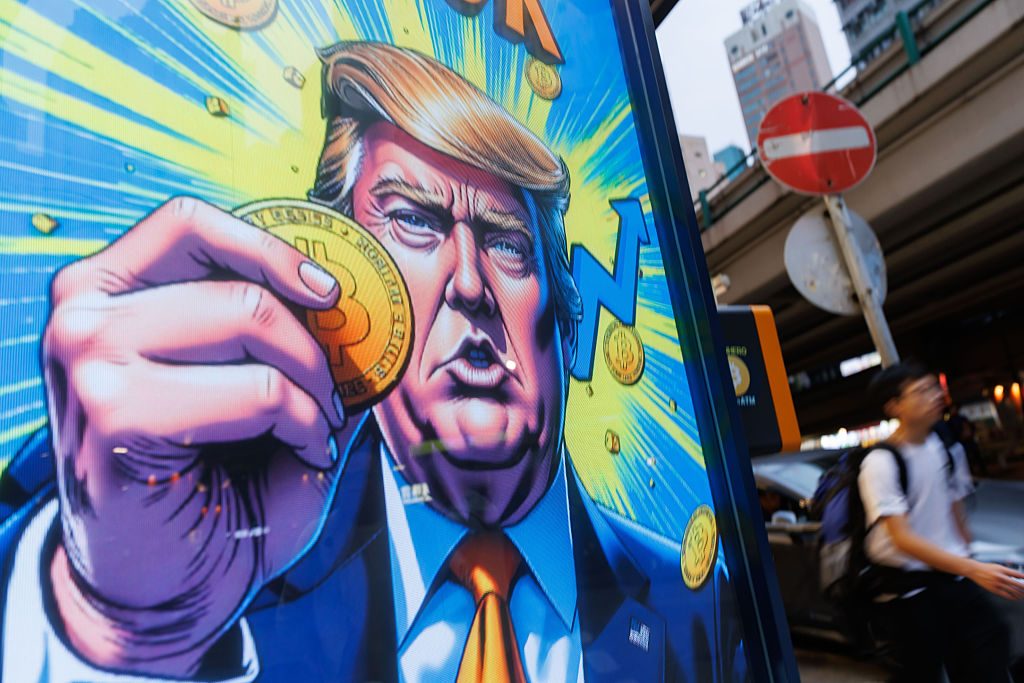The Current State of Crypto: An Ironic Downturn
Crypto is in an ideal position to rise, with favorable conditions such as a high money supply, lenient financial policies, and proactive support from the US government, which is promoting deregulation and considering a strategic reserve to increase crypto prices. President Trump aims to transform the US into “the crypto capital of the planet” — and he appears committed to this vision.
Despite this potential, Bitcoin has seen a significant decline of about 15% in the past two weeks, following an early October peak. While volatility is expected in the crypto space, this downturn is stark when compared to a broadly stable or rising market. G7 markets are down slightly, while emerging markets show resilience. In contrast, gold, which Bitcoin aims to mimic as “digital gold,” has surged by 7% in the same timeframe, marking a staggering 60% increase since the beginning of the year.
Bitcoin’s past two weeks could either signal a temporary setback or foreshadow deeper issues. Although its aggressive growth might resume, the recent developments raise questions about its sustainability. Those who control Bitcoin could find themselves facing unintended consequences.
The Original Vision of Bitcoin
Created in the aftermath of the 2008 financial crisis, Bitcoin aimed to transfer financial power from bankers to individuals, providing an alternative monetary system. The revolutionary intent is encapsulated in its first block, which references the UK Chancellor’s struggle with bank bailouts. Its blockchain technology replaced traditional banking ledgers, enabling users to bypass banks entirely. By capping the supply at 21 million coins, Bitcoin was designed to maintain value, unlike fiat currencies subjected to central bank manipulation, making it a hedge against inflation.
However, the anticipated financial revolution has not materialized. While early adopters saw substantial gains, rising from mere cents at inception to over $100,000 today, Bitcoin’s idealistic roots have faded. Although over 50 million people have purchased Bitcoin, it has not achieved practical currency status due to its volatility and cumbersome nature.
The Rise of Crypto Oligarchs
Today, a few influential players dominate the crypto market, with ties to Trump enhancing their influence. In a manner reminiscent of traditional banks, these crypto oligarchs leverage state support to inflate their asset values. For instance, the family of Trump reportedly netted around $1 billion from their crypto ventures. Investment banks’ adoption of crypto products signifies the establishment’s takeover of what was once a decentralized financial system.
Instead of functioning as an alternative financial vehicle, these “crypto-garchs” have transformed Bitcoin into a speculative asset. Through large funds known as Bitcoin treasuries, they manipulate prices by strategically removing Bitcoin from circulation to drive up its value.
Concerns Over Market Stability
MicroStrategy (MSTR), a leading example, has leveraged its Bitcoin holdings for profit. MSTR was founded in 1989, but it found its stride during the COVID-19 market surge. By accumulating Bitcoin, it effectively drove prices higher, benefiting both its shares and the overall market. This cycle led to a significant concentration of Bitcoin ownership, with only 2% of holders controlling most of the market.
While these strategies initially provided economic and political clout, they also pose a risk. A large-scale liquidation by any of these oligarchs could destabilize the market due to the low trading volume of Bitcoin. If they need to sell in bulk, it could trigger a price collapse, potentially impacting the entire financial ecosystem.
As the crypto gentry face this precarious situation, gold has found favor among investors. Believing that Bitcoin may devolve into a digital version of gold, many are returning to the latter, which has historically been a safe haven during crises. If Bitcoin falters, it may lead to a broader market crash with a cascading effect across other assets.
The Future of Bitcoin
In the short term, Bitcoin’s favorable conditions suggest it may rebound. However, the events of the recent week may hint at a more significant endgame: a market upheaval. The deep integration of Bitcoin into the mainstream financial system means a crash could ignite widespread sell-offs. Unlike in 2008, where bailouts were anticipated, the current economic climate may not allow for similar interventions, especially given the soaring US debt levels.
If prominent figures in the market falter, it could ironically fulfill Bitcoin’s original ambition of redistributing financial power. In the end, the lofty dreams of Bitcoin’s creators might see a semblance of realization if these crypto oligarchs face their reckoning.



